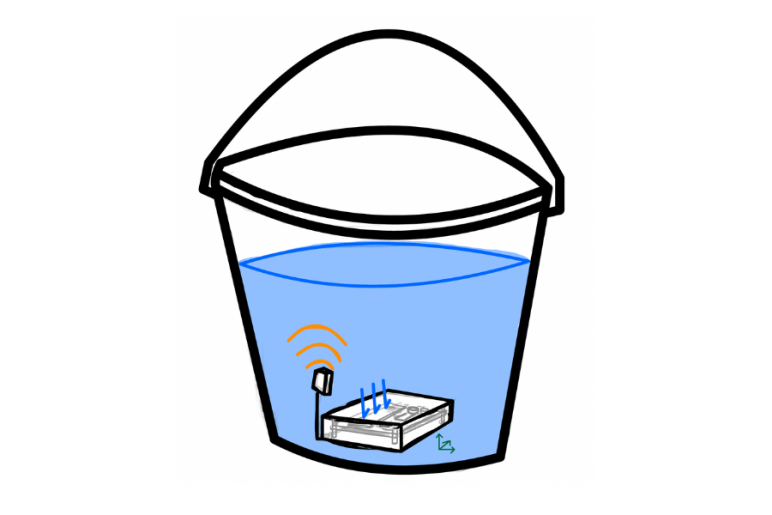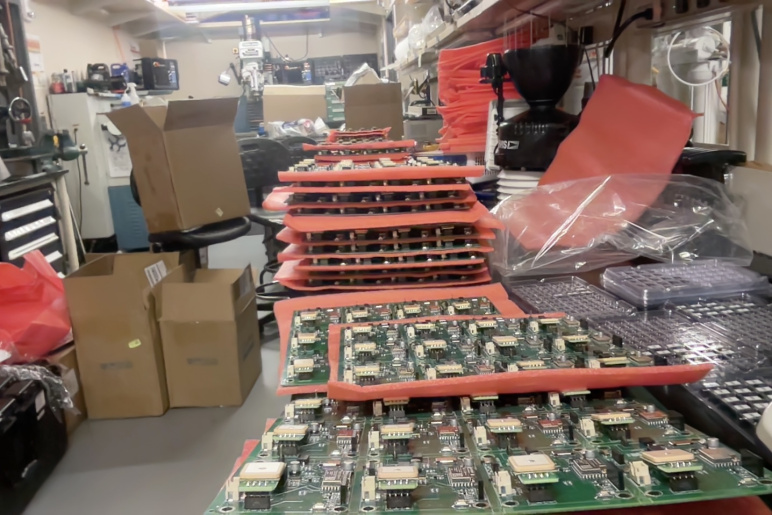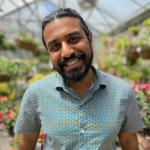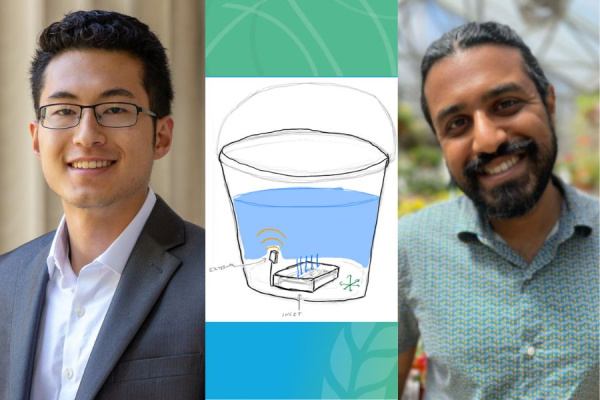Our Research Smart buckets: Measuring water access in rural India

A design for the smart bucket that demonstrates the architecture of the sensor module being designed.
Jon Besssette on the left and Gokul Sampath on the right assemble water buckets in India.
The circuit boards as manufactured in multiples of twelve on a sheet. Credit: Jonathan Bessette

Manufacturing 600 circuit boards in the lab at MIT.
A jerrycan with a sensor is being filled, while two buckets, also retrofitted with sensors await filling in a pilot study in Jikhra, West Bengal India. The government constructed hand pump is labeled by the team with a red circle, so the water fetchers can easily indicate what source they utilized in their water diaries.
Credit: Jonathan Bessette
Jon Bessettee conducts research in a village in India with people from the village standing behind him.
Shipping the dispensers in a truck.
Ankita Ghosh (right) demonstrates turning on the sensor to the team of surveyors (left) in an office in Kalyani, West Bengal, India.
Credit: Jonathan Bessette
Principal Investigators
Gokul Sampath
- PhD student
- 2024 India Grantee
- 2023 -2024 Rasikbhai L. Meswani Fellow for Water Solutions
- 2022 J-WAFS Travel Grantee
- Department of Urban Studies and Planning
Jonathan Bessette
- PhD student
- 2024 -2025 Rasikbhai L. Meswani Fellow for Water Solutions
- 2024 J-WAFS India Grantee
- 2022 J-WAFS Travel Grantee
- Department of Mechanical Engineering
Challenge:
Can we invent low-cost, remote sensors to better understand water fetching practices in the developing world?
Research Strategy
- Design and develop low-cost sensors that are adaptive to a variety of household water collection devices
- Provide households these sensor-enabled water collection devices (“smart buckets”) that collect data on households water fetching practices: distance to water source, fetching time, volume fetched, and water source selected
- Validate sensors under field conditions by comparing data obtained from “smart buckets” with household water diary surveys, where households self-report information on their water fetching
Project description
Since the discovery of arsenic in wells in Eastern India in the late 1980s, governments and nongovernmental organizations have sought to address the problem in rural villages by providing safe community water sources. Yet despite access to safe alternatives, many households still fetch and consume water from contaminated wells. As a result, approximately 40 million people across the region are at elevated risk of cancer, stroke, and heart disease from arsenic present in drinking water and cooked food. Women are the primary water fetchers for most families in rural India, but the scarcity of data on exactly how women choose water sources makes it difficult to develop strategies to reduce arsenic exposure.
Automated data collection of water fetching practices in the developing world could offer a cheap and accurate way to gather data with greater geographic scope and breadth. In this project, Bessette and Sampath are working on small sensors to be placed inside water fetching vessels to create “smart buckets” that can help obtain a clearer picture of fetching practices in arsenic affected villages. By demonstrating the efficacy of a sensor-based approach to understanding water fetching practices, the researchers hope to address a major data gap in international development.
Outcomes
- Designed a low-cost, mass-manufacturable sensor that can be used to understand water fetching in remote areas around the world
- Validated the sensor functionality with over 200 families in rural India by conducting surveys, interviews, and water diary studies
- Discovered that fetching behavior is often influenced by social factors, which create unintuitive behavior, like walking longer distances to fetch water or switching to lower quality water sources
News
Additional Details
Impact Areas
- Water
Research Themes
- Water Purification & Desalination
Year Funded
- 2024
Grant Type
- India Grant
Status
- Completed


